British vs American English
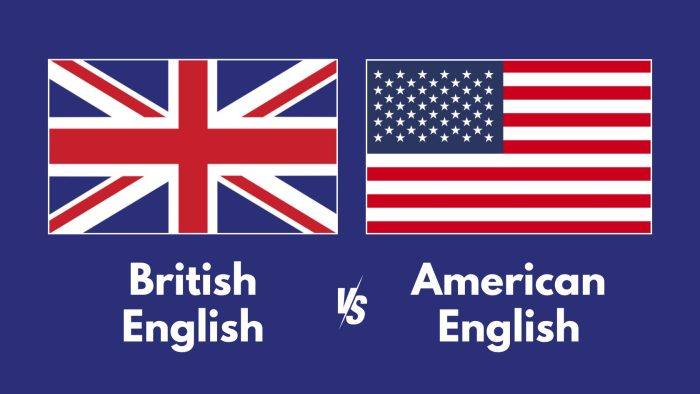
I am American, so I only use American English. With that said, British and American English are like siblings from the same language family. They share a lot, but they also have their unique quirks.
While both versions are correct, they grew up in different neighborhoods. British English stayed at home in the UK, soaking up history. American English went on an adventure across the ocean, picking up new influences. Literally.
This led to some interesting differences in spelling, pronunciation, and even vocabulary. But remember, no matter which one you use, the most important thing is being understood. Here are some of my favorites… or should I say favourites?
| British English | American English |
|---|---|
| Flat | Apartment |
| Lift | Elevator |
| Lorry | Truck |
| Petrol | Gasoline |
| Biscuit | Cookie |
| Crisps | Chips |
| Chips | French Fries |
| Rubbish | Trash/Garbage |
| Queue | Line |
| Holiday | Vacation |
| Jumper | Sweater |
| Torch | Flashlight |
| Trousers | Pants |
| Sweets | Candy |
| Nappy | Diaper |
| Bonnet (car) | Hood (car) |
| Boot (car) | Trunk (car) |
| Garden | Yard |
| Chemist | Pharmacy/Drugstore |
| Football | Soccer |
Lorry vs Truck
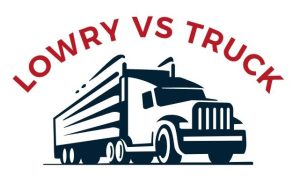
In the UK, people say “lorry” to talk about those big vehicles that carry goods on the road. In the US, the same big vehicles are called “trucks.”
So, while someone in London might complain about a lorry blocking the street, someone in New York would talk about a truck doing the same thing. It’s all about where you are.
Wardrobe vs Closet
A “wardrobe” is a big cabinet you can move. People in places like the UK use this word a lot. A “closet,” on the other hand, is a small room or space built into the wall. It’s more common in the US.
So, if you’re looking for your jacket in a British home, check the wardrobe. But in an American home, it’s probably in the closet.
Trainers vs Sneakers
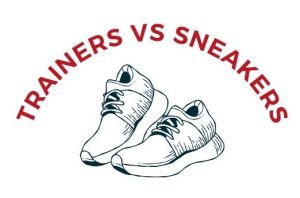
“Trainers” and “sneakers” are both shoes you might wear for a jog or to the gym. But, where you say it matters.
In the UK, they call them “trainers”. But in the US, they’re known as “sneakers,” a name that comes from how quiet they are on the ground. So quiet, you can sneak around.
Trousers vs Pants
In the UK, “trousers” is the go-to word for what you wear over your legs, from waist to ankle. In the US, the same piece of clothing is called “pants.”
So, if you’re shopping in London and ask for pants, you might get some funny looks because there, “pants” usually means underwear. While in New York, asking for trousers might make you sound a bit fancy or old-fashioned.
Jumper vs Sweater
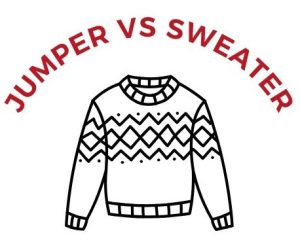
“Jumper” and “sweater” are both about staying warm, but they go by different names depending on where you are.
In the UK, a “jumper” is a knitted garment that keeps you cozy in cold weather. In the US, the same kind of clothing is called a “sweater.”
So, if you’re chilly in Manchester, you might pull on a jumper. But in Boston, you’d reach for a sweater. The idea is the same: something to keep you warm.
Autumn vs Fall
“Autumn” and “fall” are two words for the same cozy season when leaves change color. Simple, right?
“Autumn” is the term often used in the UK. It’s a bit formal and comes from an old French word. In the US, people say “fall” because it’s when leaves fall from the trees.
Biscuits vs Cookies
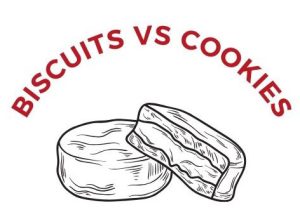
“Biscuits” and “cookies” are both sweet treats, but what you call them depends on where you are.
In the UK, “biscuits” are what you have with your tea. They’re usually not too sweet and can be crunchy. In the US, “cookies” are what you’re looking for if you want something sweet, often with chocolate chips or nuts.
Crisps vs Chips
“Crisps” and “chips” are about crunchy snacks. But it depends on where you are. “Crisps” are thin, crispy slices of potato in the UK. But in the US, the same snack is called “chips,” as in potato chips.
Now, if you’re in the UK and ask for chips, you’ll get what Americans call “fries” — those hot, fried potato sticks. So, if you’re craving something crunchy in London, ask for crisps. But in Los Angeles, you’d ask for chips.
Chips vs French Fries
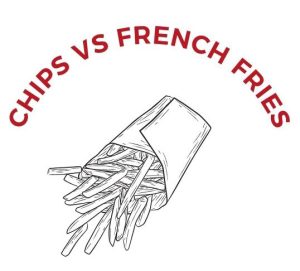
Let’s really set this straight with the word “chips”. “Chips” and “French fries” are both about delicious, fried potatoes, but they’re not exactly the same.
In the UK, “chips” are thick-cut fries, often soft in the middle and a bit crispy on the outside. They’re a classic side dish with fish and chips. In the US, what the British call “chips” are known as “fries” or “French fries.” These are usually perfect with a burger or on their own with ketchup.
Sweets vs Candy
“Sweets” in the UK are for all kinds of sugary treats, from chocolate bars to gummy bears. In the US, the same goodies are called “candy.”
That means if you’re craving something sugary in Manchester, you might pop into a shop for some sweets. But in Los Angeles, you’d be looking for a candy store.
Rubbish vs Garbage
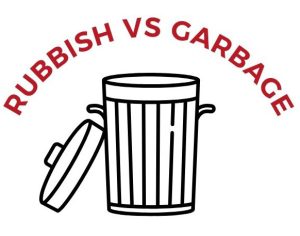
“Rubbish” and “garbage” both mean things you want to throw away. In the UK, “rubbish” is the common word for waste or things that are no longer needed. It’s what you put in the bin.
In the US, “garbage” or “trash” is what you’d call the same stuff. All garbage goes into the trash can.
Rubber vs Eraser
Both “rubber” and “eraser” fix pencil mistakes. It’s called a “rubber” in the UK. In the US, we call them an “eraser.”
In a British school, you’d use a “rubber” to fix a mistake in your notebook. But in an American classroom, you’d ask for an eraser.
Mobile Phone vs Cell Phone
“Mobile phone” and “cell phone” are those handy devices we use every day. Depending on where you are, it’s more common to use one or the other.
In the US, they’re called “cell phones,”. In the UK, they use the term “mobile phone”. This highlights the phone that allows them to work in a mobile way.
Lift vs Elevator
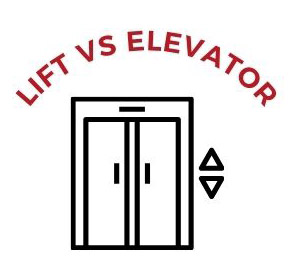
People say “lift” in the UK… And, now that you think of it… It’s a short, simple word that gets straight to the point.
In the US, we use the term “elevator.” This word focuses on the action of elevating, or lifting, people up.
Cooker vs Stove
“Cooker” and “stove” are the British and American ways to say the thing that cooks your food.
The UK used the term “cooker” for the big appliance in the kitchen. In the US, the same appliance is usually called a “stove.” We also call it a range.
American vs British English
In the end, British and American English are like two sides of the same coin. They’re similar, yet distinct enough to spark curiosity.
Whether you’re switching between “colour” and “color” or deciding if it’s a “flat” or an “apartment,” it’s all part of the fun of learning.
For anyone wanting to dive deeper, the BBC offers excellent learning resources to understand these differences.

I have to say it is a good opportunity to learn!